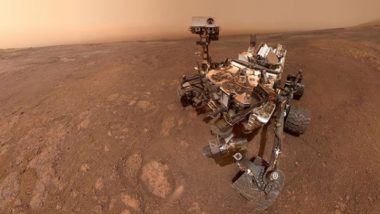Every year on February 11, the United Nations celebrates International Day of Women and Girls in Science. It ensures equal access and participation to women and girls in the field of Science. The United Nations General Assembly (UNGA) adopted a resolution in their 70th session in December 2015 to celebrate this day. As per the resolution, "International Day of Women and Girls In science; to promote participation of women in fields related to science and technology." All the UN member states approved of this resolution, and more than 68 countries were willing to celebrate. International Day of Women and Girls in Science 2019: Know Date, Theme, History and Significance of This Day.
Over the past 15 years, the international community has made a lot of effort in inspiring and engaging women and girls in science. According to the UN, at present, less than 30 per cent of researchers worldwide are women. Meanwhile, only around 30 per cent of all female students select STEM-related fields in higher education, reveals UNESCO data (2014 - 2016). However, the number of women are even lower in natural science, mathematics, statistics, engineering and construction. Mangala Mani is ISRO's First Woman Scientist to Spend Over a Year in Antartica.
If we talk about India, many women, over the years have contributed to the field of science. Here is the list of Indian women scientists who made the country proud:
Aditi Pant
She is an Indian oceanographer and was a part of the Indian expedition to Antarctica in 1983 and became the first Indian woman to visit Antarctica along with Sudipta Sengupta to study geology and oceanography. Pant pursued BSc from the University of Pune. She completed her MS in Marine Sciences, with a US government scholarship, at the University of Hawaii. Aditi completed her PhD at London’s Westfield College, and returned to India to join the National Institute of Oceanography in Goa.
Indira Hinduja
She is a Gynecologist at Inkus Ivf Centre in Charni Road, Mumbai and Breach Breach Candy hospital. She is a member of Bombay Obstetrics and Gynaecological Society.,Indian Association of Gynaecological Endoscopists and Indian Association of Sex Educators. Dr Hinduja is a pioneer of the gamete intra-fallopian transfer technique (GIFT), and has also delivered India’s first GIFT baby.
Sunetra Gupta
She is a novelist, and Professor of Theoretical Epidemiology at the University of Oxford. Gupta has a passion for studying infectious agents that cause diseases such as influenza, malaria and bacterial meningitis. She is a recipient of the Scientific Medal by the Zoological Society of London and the Royal Society Rosalind Franklin Award for her scientific research.
BP Dakshayani
Bannihatti Parameshwarappa Dakshayani is the former group director of the Flight Dynamics and Space Navigation groups of the Indian Space Research Organisation (ISRO) Satellite Centre. Dakshayani was appointed to ISRO Satellite Centre in 1984 and was assigned to computer programming and orbital dynamics. She was responsible for the low earth, geosynchronous orbit and interplanetary missions of the ISRO Satellite Centre. She was project manager for the Space Capsule Recovery Experiment and deputy project manager for the Mars Orbiter Mission.
Nandini Harinath
She is a rocket scientist at ISRO’s Satellite Centre in Bengaluru. She has worked on 14 missions over 20 years at the ISRO. She is the Project Manager, Mission Design and served as deputy operations director on the Mars Orbiter Mission, also called Maangalyaan.
Moumita Dutta
She is an Indian Engineer working at the Space Applications Centre (SAC), ISRO- Ahmedabad, as a scientist/engineer. Dutta expertise in the development and testing of the Optical and IR sensors/instruments/payloads. She was part of the team Mars Orbiter Mission. She is a recipient of the ISRO Team of Excellence Award for the Mangalyaan.
Anuradha TK
She is a project director of the ISRO specialised communication satellites. Anuradha worked on the launches of the satellites GSAT-12 and GSAT-10. She is the senior most female scientist at ISRO.
Minal Sampath
She is an Indian scientist and systems engineer with the ISRO. Sampath worked with mechanical engineers on the team of MOM. As Systems Engineer for the mission, she helped integrate and test the sensors that the orbiter was carrying. Sampath is currently Deputy Project Director at ISRO.
Each year the day has a specific theme. This year, the theme 'Investment in Women and Girls in Science for Inclusive Green Growth’ with an aim to develop a program to have the best showcase of solutions to get more investment in women and girls for green growth. The agenda remains to include girls in mainstream science and technology.
(The above story first appeared on LatestLY on Feb 11, 2019 09:50 AM IST. For more news and updates on politics, world, sports, entertainment and lifestyle, log on to our website latestly.com).













 Quickly
Quickly


